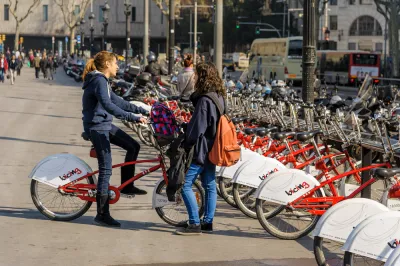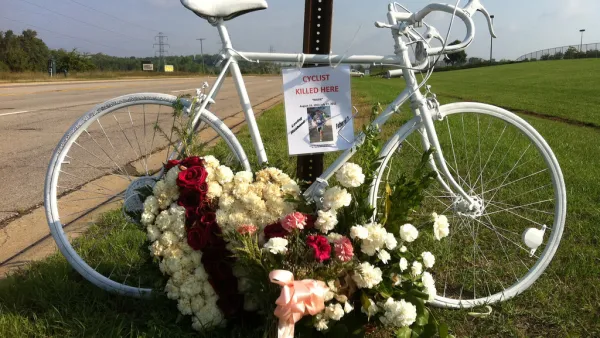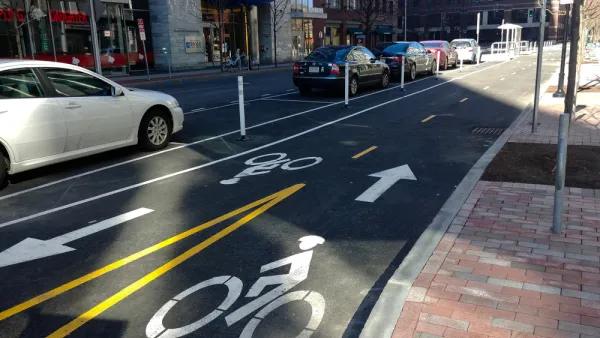In the United States, not a single bikeshare rider has died in an accident so far. A report from the Mineta Transportation Institute considers why bikeshare may be safer than conventional biking.

While regular cyclists contend with the very real possibility of fatal crashes as they navigate vehicular streets, bikeshare riders have so far been spared. That's not to say bikeshare users haven't been involved in accidents and injuries, but none have died in the United States since the first systems were deployed last decade.
Brad Plumer writes, "A new report [pdf] from the Mineta Transportation Institute sifts through data from bike-share systems in Washington, DC, San Francisco, and Minneapolis. They found that bike-share bikes had lower collision and injury rates than personal bikes in all three cities. In DC, the collision rate for bike share was 35 percent lower." Below are some of the reasons from the report that might explain this phenomenon.
- Bikes in bikeshare systems tend to be heavier, with wider tires and bright, noticeable colors
- Bikeshare usually operates in downtown areas where drivers are more alert to pedestrians and cyclists
- Riders tend to be less experienced, and thus more cautious
- Riders often lack helmets, which may encourage drivers to be more cautious as they pass
- While some have suggested that bikeshare promotes "safety in numbers," the report found no clear evidence of this (although separate findings have shown correlations in some areas between bike numbers and overall road safety)
FULL STORY: A new study looks at why bike share is so much safer than regular biking

National Parks Layoffs Will Cause Communities to Lose Billions
Thousands of essential park workers were laid off this week, just before the busy spring break season.

Retro-silient?: America’s First “Eco-burb,” The Woodlands Turns 50
A master-planned community north of Houston offers lessons on green infrastructure and resilient design, but falls short of its founder’s lofty affordability and walkability goals.

Delivering for America Plan Will Downgrade Mail Service in at Least 49.5 Percent of Zip Codes
Republican and Democrat lawmakers criticize the plan for its disproportionate negative impact on rural communities.

Test News Post 1
This is a summary

Test News Headline 46
Test for the image on the front page.

Balancing Bombs and Butterflies: How the National Guard Protects a Rare Species
The National Guard at Fort Indiantown Gap uses GIS technology and land management strategies to balance military training with conservation efforts, ensuring the survival of the rare eastern regal fritillary butterfly.
Urban Design for Planners 1: Software Tools
This six-course series explores essential urban design concepts using open source software and equips planners with the tools they need to participate fully in the urban design process.
Planning for Universal Design
Learn the tools for implementing Universal Design in planning regulations.
EMC Planning Group, Inc.
Planetizen
Planetizen
Mpact (formerly Rail~Volution)
Great Falls Development Authority, Inc.
HUDs Office of Policy Development and Research
NYU Wagner Graduate School of Public Service





























